Root Ball Hedging Plants
Root Ball Season 2025 / 2026 Has Arrived
Excellent Value Hedging Plants
Yew Hedging Root Balls, Thuja Hedging Root Balls and lots more hedging varieties available now!
Root Balled Plants Explained:
During the autumn and winter months each year, the root ball season begins in the UK as plants enter their dormant phase. Root ball hedging plants are grown and nurtured as nature intended in fields rather than containers. Once the mature plants are dormant, which happens during the cold autumn / winter months, they are taken out of the ground with the soil around the plant’s root ball intact and wrapped for protection in biodegradable Hessian sacking. There is no need to remove this sacking when planting, as it disintegrates naturally over time. This basically means that the plant will be supplied with a proper root system fully intact but without the pot.
As root ball hedging plants are not containerised (or potted) but rather taken straight from the ground, they offer great value for money. This is particularly valid if you need larger quantities of plants (which is often the case where an evergreen hedging screen is required). However you should be prepared to plant your root balls between October and April.
Scroll down for more information on root ball plants...
Root Ball Hedging Special Offers
Check out our special offer prices for root balled evergreen hedging. All root ball hedging plants are available to buy online and we offer nationwide UK delivery. Contact us with your requirements or any questions. Our dedicated team are here to help. At Paramount Plants, our Root Ball Hedging plants come in a range of sizes, starting from circa 1 metre tall right up to sizes of over 3 metres for those wanting an instant evergreen screen. We offer a pre-order service where you can pay now to take advantage of offers and deals and we'll notify you as soon as the season starts and delivery is possible.
Our top sellers include Root balled yew hedging in a range of sizes. Thuja Occidentalis Smaragd (White Cedar Smaragd) is a beautiful dense-growing conifer for hedging with aromatic green foliage, available in sizes between 2 and 3 metres. Thuya Occidentalis Brabant is another excellent specimen hedging plant, again available in a range of mature sizes. Cherry Laurel is probably our most popular hedging plant, being fast-growing and offering a dense evergreen privacy screen.
Looking for Potted Hedging? Go to our Regular Hedging Plants section for a wide choice of Hedging.
Looking for a Special Deal? Go to our Reduced Hedging Plants section - strictly while stocks last (remaining stock levels indicated on the page).
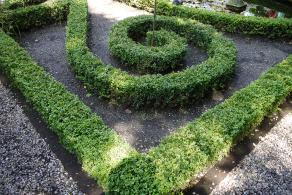
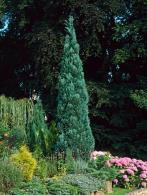
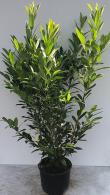
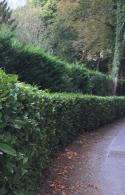
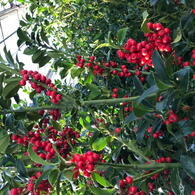
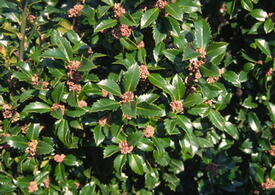
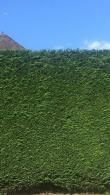
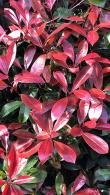
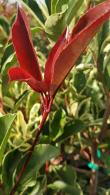
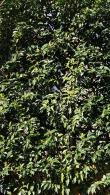

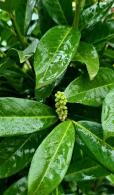

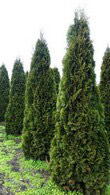
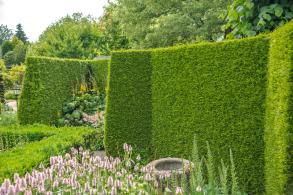
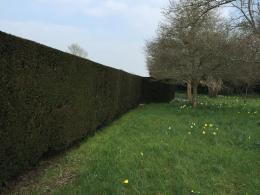
Why can root ball trees and shrubs only be purchased during the coldest months?
In the coldest months of the year the plant is dormant (sleeping). While the plant is dormant, tree specialists can lift plants safely from the ground without the risk of the plant going into shock. The plant is specially prepared by cutting out a round ball of soil surrounding the root of the plant. This ball of soil is then usually covered in hessian to give extra protection to the root ball. Once the weather warms up significantly in spring (generally end of March to April), the roots of plants will start growing again. Root balled plants need to either be planted in the ground by early spring or otherwise potted into containers.
What types of plants are available as root balls?
During autumn and winter, evergreen hedging is the most popular type of plant planted by gardeners and landscapers in root ball form.
What are the benefits of root balled plants?
The benefit of root ball hedging plants is that they are generally available at a reduced price compared to potted plants. If a customer needs large quantities of hedging then the cost savings can be significant using root balled plants provided they are planted in the ground anytime between November and April.
What do I need to consider when planting root balled hedging plants?
View our Video Guide to Planting A Root Balled Hedge
The only difference to containerised plants is that root balled plants will be supplied without the pot and soil. This means that they should be planted into the ground as soon as possible– ideally within a few days of delivery. If there is extreme frost, then the root ball of the plant should be protected with horticultural fleece (or just use old blankets if you prefer) if it cannot be immediately planted. If the ground is solid with frost, then planting may need to be temporarily postponed until the soil has thawed. The plants will usually have a biodegradable hessian sack covering the soil of the root ball and on larger plants this will have wiring securing this in place. This hessian and wiring should NOT be removed when planting. This protective wrapping will decompose naturally over time. After planting it is recommended to mulch the beds –mulch or mix can be purchased in readymade bags. A good mulch comprises composted bark, leaf mould, manure and fenland soil). A mulch will increase the moisture levels in the soil and prevent drying out.
Watering
Watering is essential. A leaky hose should be installed along the length of the new hedge to ensure watering is thorough right down beyond the top of the soil direct to the root ball. A timer will ideally be installed to come on in the early evenings. Watering may need to be avoided in extreme frost but once the soil thaws the ground should be watered. As soon as the weather warms up, then watering with the leaky hose for a couple of hours to soak through to the roots is recommended. Keep in mind that you can sometimes over-water a plant but drought is nearly always the reason a plant will fail. Regular checks of the hedge made a couple of times per week is the best way forward. Things to check for would be wilting of leaves or yellowing, both of which can be an indication that you may need to address the watering. It could mean the plant needs more or less watering – check the soil to decide). The first 18 months of planting are crucial to the establishment of the root system. Feeding with a liquid or granular feed during the growing months (April-Sept) is recommended at least four times a year.





